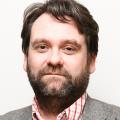IT’S a little known fact but experts believe Deeside’s Leisure Centre was the first to carry the ‘leisure centre’ title.
Throughout the 1960s and early 70s most new developments were called sports or recreation centres but with Deeside Leisure Centre, Hawarden Council was determined to break the mould.
The original inspiration came from Port Talbot’s Afan Lido, which was opened by the Queen in 1965, and sadly burnt down in 2009.
Deeside was the next major centre to be developed in Wales after the success of Afan Lido and Hawarden Council, led by Cllr Arthur Ketland, took the decision to replace a local recreation playground with a sports centre on what proved to be a perfect 17-acre site at Queensferry.
The site was duly purchased for approximately £23,000 and a sub-committee of Hawarden Council members and three chief officers began visiting existing UK sports centres and early dual-use projects across the country.
In September 1964 the Welsh Office approved a two-phased scheme in principle and the council instructed Williamson Partnership, Consultant Architects and Engineers of Porthcawl, to proceed.
Work started on site in 1969 and Geoff Gearing arrived as manager in May 1970 to see the steel cladding walls of the sports hall, forged at the local steel works, put in place.
Phase 1 of Deeside Leisure Centre cost £415,467 and opened its doors for business on March 12, 1971. The formal opening by the Duke of Edinburgh took place four months later.
Today, Geoff, 84, is still in touch with the leisure centre where he first took charge and on a recent he visit the took the time to recollect some of his memories as part of the Sports Leisure Legacy Project, which is recording the history and the development of UK leisure centres.
“Ten years previously I had been teaching pubescent boys the one two rhythm of the lay up shot in a standard school gym in Harrow,” remembers Geoff, who had been a physical education teacher in Essex and a basketball coach before working at Bristol University.
“But when we opened we had a wide ranging programme of displays and coaching courses and some of the first facilities available included a sports hall, two squash courts, two tennis courts, a children’s play area and a grass football pitch.
“There was also a multi-purpose social room which became home for a variety of activities and events, including tap dancing, indoor bowls, discos, dog shows and gymnastics.”
Soon after, the ice rink was built and became an integral part of the leisure centre’s appeal within the local community and further afield.
The rink opened on December 29, 1973, with an International Gala featuring the Great Britain team led by John Curry and Robin Cousins.
By 1974, the ice rink could accommodate ice hockey, curling, skating clubs and even self-employed professional ice skating teachers and today it remains the national centre for ice sports in Wales.
“Two squash courts and tennis courts were added and the addition of the Hawarden Suite with dance hall, seating for 400, two bars, grill room, a sports shop, sauna suite and improved weight training room gave licence for the management to market Deeside Leisure Centre as ‘Britain’s Number One Leisure Centre’,” says Geoff.
Another highlight for Geoff came in January 1973 when the leisure centre became a venue for World Championship Tennis - a tour for professional male tennis players which saw the likes of Ken Rosewall, Arthur Ashe and Fred Stolle head for Flintshire after the centre’s deputy manager, Mike Evans, persuaded sponsors Rothmans to make an unlikely stop in North Wales.
“Who would believe we’d see World Championship Tennis on a special carpet with bleacher seating in rural North Wales?” laughs Geoff. “Even better was to follow the next year when we won the contract to stage the Wightman Cup (an annual tennis tournament between teams from the United States and Great Britain) in the ice rink.”
Geoff went on to chair the Quality of Life Experiment which saw the development of sport and leisure in North Wales, before leaving Deeside in 1978 when he went on to work with Jimmy Hill at Coventry City FC, where the pair developed the Sky Blue Connexion leisure centre in the early 1980s.
A longtime triathlete, Geoff, who now lives in Devon, finished second in the men’s 80-84 category sprint race at the Edmonton World Championships in 2014 - his third podium at a Worlds after placing third in Budapest (2010) and Vancouver (2008).
He has returned a number of times to Deeside and proudly describes the centre he used to manage all those years ago as “setting new standards” today with developments such as the Afon Spa and the Evolution Extreme Centre.
“After a lifetime playing, teaching ,coaching and managing in sport I wanted to keep fit
and continue participating with my peers and others in a sport that offered challenges to the mind and body for all ages so triathlon was a no-brainer,” he adds. “I’m still very proud of our centre and the work we all put in which contributed toward its success.”










Comments: Our rules
We want our comments to be a lively and valuable part of our community - a place where readers can debate and engage with the most important local issues. The ability to comment on our stories is a privilege, not a right, however, and that privilege may be withdrawn if it is abused or misused.
Please report any comments that break our rules.
Read the rules here